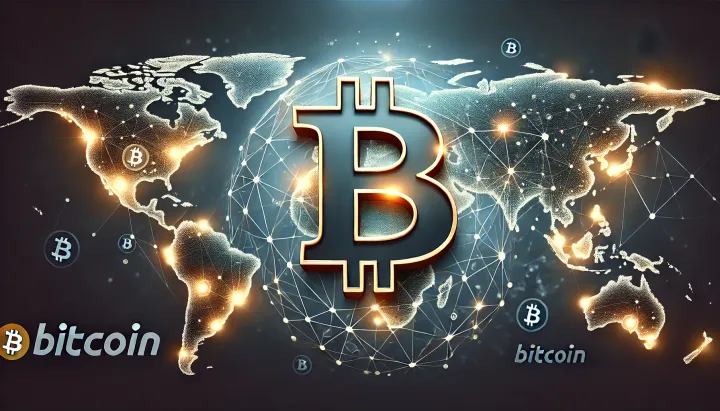Empowering Change Amid Economic Turmoil in Zimbabwe
On April 04, 2025, Evan Mawarire gave a talk at the MIT Bitcoin Expo 2025, where he detailed Zimbabwe’s hyperinflation, grassroots mobilization, and the potential of Bitcoin to empower oppressed communities.

- My 'briefing notes' summarize the content of podcast episodes; they do not reflect my own views.
- They contain (1) a summary of podcast content, (2) potential information gaps, and (3) some speculative views on wider Bitcoin implications.
- Pay attention to broadcast dates (I often summarize older episodes)
- Some episodes I summarize may be sponsored: don't trust, verify, if the information you are looking for is to be used for decision-making.
Summary
On April 05, 2025, Evan Mawarire gave a talk at the MIT Bitcoin Expo 2025, where he detailed Zimbabwe’s hyperinflation, grassroots mobilization, and the potential of Bitcoin to empower oppressed communities. His personal account underscores the transformative impact of financial technologies in unstable economies. The narrative challenges decision-makers to consider innovative solutions for safeguarding economic dignity.
Take-Home Messages
- Economic collapse devastates daily life: Hyperinflation in Zimbabwe stripped citizens of basic necessities and eroded savings.
- Grassroots activism drives change: The Flag Citizens Movement emerged as a direct response to systemic oppression.
- Bitcoin as a tool for empowerment: Decentralized financial systems offer practical solutions to stabilize value.
- State repression stifles progress: Government violence and corruption severely limit citizen mobilization.
- Innovative financial models are essential: Integrating alternative currencies and technologies can mitigate ongoing economic crises.
Overview
Evan Mawarire recounts the harrowing experience of Zimbabwe’s hyperinflation and its devastating impact on everyday life, highlighting the severe devaluation of local currency and the struggle for basic survival. His account details the daily hardships, from waiting in long lines for meager food supplies to witnessing personal savings vanish overnight.
He explains how these crises spurred the creation of the Flag Citizens Movement, a grassroots initiative aimed at reclaiming dignity and driving national change. Mawarire’s transformation from a local pastor to a national activist illustrates the power of individual courage in the face of systemic corruption.
The broadcast emphasizes the critical role of technology in providing alternative financial solutions, with Bitcoin presented as a potential safeguard for the most vulnerable populations. The discussion links traditional protest methods with modern innovations to propose a pathway out of economic despair.
Mawarire’s narrative ultimately challenges policymakers and technologists to focus on protecting the least among us, suggesting that financial empowerment is key to fostering resilient and inclusive societies. His story serves as both a warning and a call to action for reimagining economic stability in repressive environments.
Stakeholder Perspectives
- Activists: Champion the role of grassroots mobilization in confronting oppressive regimes and demanding change.
- Financial Technology Developers: See opportunities in creating decentralized systems that safeguard value for vulnerable populations.
- Policymakers: Must consider frameworks that integrate innovative financial solutions to stabilize economies under duress.
- Human Rights Organizations: Advocate for protecting citizens from state repression and ensuring economic dignity.
- Local Citizens: Demand practical, sustainable solutions to overcome the challenges posed by hyperinflation and corruption.
Implications and Future Outlook
The episode highlights that extreme economic instability not only devastates daily life but also creates fertile ground for transformative social movements. For decision-makers, this underscores the urgency of designing policies that integrate alternative financial models capable of stabilizing value during crises.
The integration of decentralized technologies such as Bitcoin presents a promising opportunity to shield vulnerable populations from the adverse effects of government corruption and hyperinflation. It suggests that fostering financial empowerment can mitigate risks while promoting economic inclusion.
Looking ahead, the narrative calls for a coordinated response that combines technological innovation with robust social policies. Such an approach could enhance grassroots resilience and ensure that economic reforms reach those most in need, setting a precedent for future interventions in similar contexts.
Some Key Information Gaps
- How can alternative financial systems be designed to stabilize purchasing power during hyperinflationary crises? This question is critical because it addresses the need for practical financial tools that can protect citizens in unstable economies. It holds significant relevance for policy and economic resilience strategies.
- How can decentralized financial technologies help protect the financial interests of the most vulnerable? This question is essential as it explores the potential of Bitcoin-related innovations to provide security for low-income communities. Its implications span societal impact and the promotion of financial inclusion.
- Which technological innovations hold the most promise for advancing financial freedom under oppressive regimes? This inquiry is vital for identifying actionable solutions that can bridge the gap between technological capability and citizen empowerment. It carries interdisciplinary importance, spanning technology, economics, and human rights.
- How does state violence impact the long-term sustainability of grassroots citizen movements? This question is key to understanding the risks associated with activism under oppressive regimes. Its answer could inform strategies that balance courage with safety, thereby influencing policy and social resilience.
- What are the potential benefits and risks associated with adopting foreign currencies and decentralized financial systems in unstable economies? This question is important because it evaluates the broader economic transition and the role of Bitcoin in such environments. It is significant for its policy relevance and its potential to guide future economic reforms.
Broader Implications for Bitcoin
Economic Stability and Policy Reform
The broadcast illustrates that persistent economic instability undermines the very fabric of society, necessitating urgent policy reforms. Broader adoption of decentralized financial systems like Bitcoin could serve as a catalyst for stabilizing economies not just in Zimbabwe but in other volatile regions in Africa, Latin America, and beyond. These reforms may encourage governments to adopt more transparent and accountable fiscal policies, reducing reliance on unsustainable monetary practices.
Digital Financial Inclusion
Technological innovations in financial services have the potential to transform access to capital in marginalized communities. By leveraging Bitcoin and similar tools, underserved populations could bypass traditional banking systems and reclaim control over their financial futures. This digital shift may foster greater inclusion and reduce dependency on volatile national currencies.
Resilience Against Authoritarianism
The interplay between economic collapse and state repression presents a unique challenge that extends beyond Zimbabwe. Empowering citizens through decentralized finance could diminish the leverage of authoritarian regimes that exploit economic desperation. Such empowerment could catalyze a broader movement toward transparent governance and grassroots accountability.



Comments ()